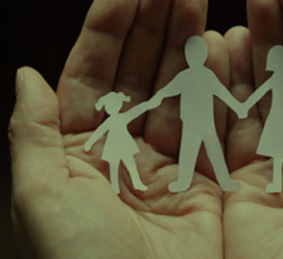Department of Aerospace Studies (AFROTC)
The Air Force Reserve Officer Training Corps (AFROTC) Program develops leadership potential and attitudes vital to preparing young minds for the professional United States Air Force Officer corps. The academics portion of Aerospace Studies teaches professional knowledge and skills unique to the Air Force, communication skills, Air Force doctrine, air and space power history, leadership and management and the dynamics of American defense policy. The Leadership Laboratory portion of the program demonstrates fundamental management skills and prepares cadets for Field Training. The lab is organized and administered by AFROTC cadets (Texas State University students who have selected the Air Force as their profession upon graduation from the University). Cadets who meet the mental, physical and moral requirements of the Aerospace Studies program qualify for a military commission and will serve in the United States Air Force initially as a Second Lieutenant. Texas State students may enter the AFROTC under a four-year program or apply for a two-year program. The Air Force offers AFROTC scholarships for qualifying four-year or two-year students.
School of Criminal Justice and Criminology
The School of Criminal Justice and Criminology prepares students to pursue advanced academic degrees and to serve the community in the operation and and management of federal, state, county, and municipal criminal justice agencies. Students pursuing a criminal justice degree may select a major in Criminal Justice, Criminal Justice — Law Enforcement, or Criminal Justice — Corrections. All include optional internships. The school also offers a Master of Science in Criminal Justice and Doctorate in Criminal Justice degree. The graduate program curriculum provides for the development of skills in criminal justice program planning, implementation and evaluation to ensure a meaningful contribution to the area of community and human services.
School Family and Consumer Sciences (FCS)
The School of Family and Consumer Sciences offers programs that prepare students for diverse professional roles. Undergraduate students can major in Human Development & Family Sciences, Fashion Merchandising, Interior Design, Nutrition and Foods, or Consumer Affairs (with or without a teaching certification). Graduate students may either pursue a Master of Science degree with a major in Family and Child Studies or enter the Dietetic Internship program.
The school’s mission is to educate, inspire, and lead to optimize the human condition. Its professors teach, mentor, and share discoveries and solutions to advance the field of Family and Consumer Sciences and prepare students for life.
Department of Military Sciences (AROTC)
The Army Reserve Officer Training Corps (AROTC) is a program of leadership development that prepares men and women for service as officers in the United States Army, Army Reserve, and National Guard. Students who complete their academic degree and ROTC programs are commissioned as 2nd Lieutenants in the United States Army.
The Army ROTC experience contributes to a variety of job skills applicable to any profession, career or job, while instilling in each cadet a sense of confidence, discipline, and personal responsibility. Moreover, each cadet gains the satisfaction of being part of a select group of great Americans dedicated to American values and service to the nation.
Department of Organization, Workforce, and Leadership Studies (OWLS)
For non-traditional students who are looking for advancement or a new career, the Department of Organization, Workforce, and Leadership Studies allows students to receive credit for knowledge and skills acquired through the workplace or technical vocational training. Programs are designed to accommodate working adults who want to further their education.
The Department of Organization, Workforce, and Leadership Studies offers a Bachelor of Applied Arts and Sciences degree to undergraduate students. Graduate students can choose the Master of Science in Interdisciplinary Studies degree, which is highly individualized and is designed to provide the adult with various course options, or the Master of Education degree for those interested in supervision. The department also offers the Texas Certified Public Manager Program.
School of Social Work (SSW)
The School of Social Work is a vibrant unit of the College of Applied Arts. It offers both the Bachelor of Social Work (BSW), which prepares students to engage in generalist social work practice, and the Master of Social Work (MSW), which prepares students to engage in advanced specialized social work practice using a generalist framework. Both these degree programs are fully accredited by the Council on Social Work Education.
The School of Social Work at Texas State has long been committed to preparing social workers to engage competently with those clients who are most forgotten in our society: these are the clients who are typically served by public agencies. Not only are the School’s graduates well-prepared to deal effectively with the most marginalized populations, they are also quite competent in working with a broad spectrum of clients, other professionals, policy-makers, and organizations. A key component to their preparation is the School’s extensive network of public and private agencies, both rural and urban, in which students are placed for field practicum. The School is closely connected with the University’s Center for Children and Families, and many of the School’s students are pursuing careers working with children and families.






